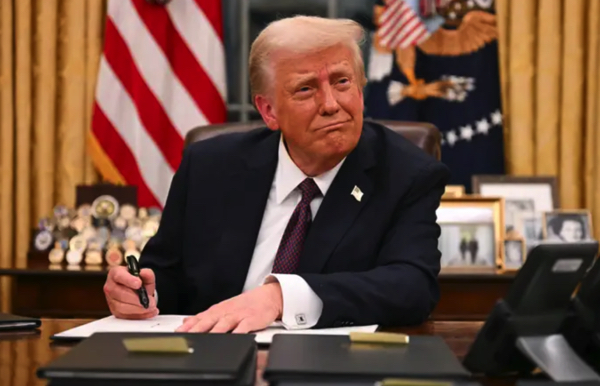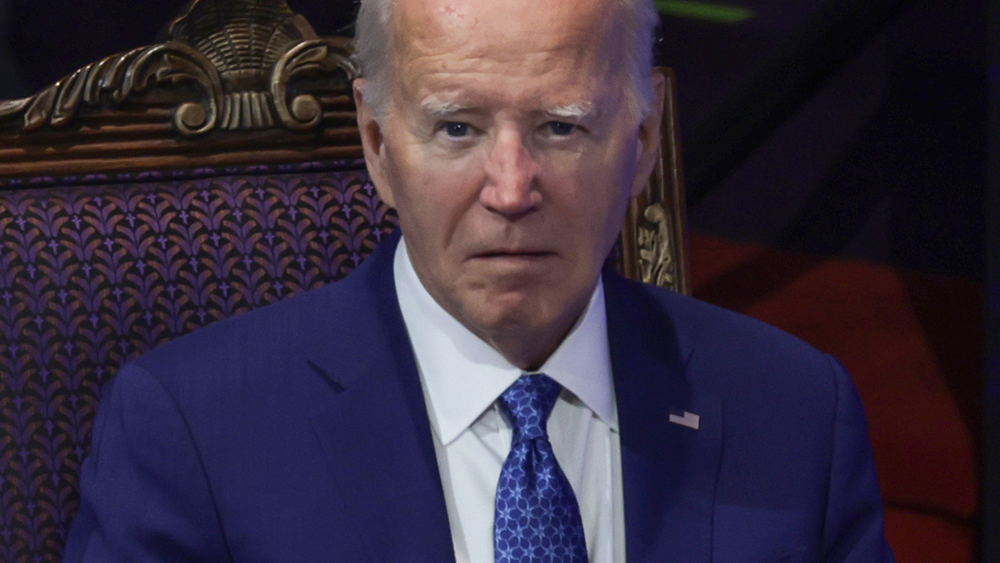 Parler
Parler Gab
Gab
- President Trump personally joined Japan trade talks, showcasing his direct approach to reshaping global trade dynamics.
- Japan proposed $300 billion in U.S. investments and military cooperation to ease tensions over tariffs.
- The White House sees Japan as a test case for its broader strategy of using tariffs to extract concessions.
- Negotiations blend trade fairness with military cost-sharing, targeting Japan’s auto sector and U.S. deficit concerns.
- The outcome could set a precedent for future U.S. trade deals with allies like South Korea and the EU.
A first-mover advantage
The White House has framed these negotiations as a test case for its broader trade strategy. Treasury Secretary Scott Bessent noted a “first-mover advantage” for Japan, one of the first nations to engage in direct talks after Trump announced sweeping tariffs on imports from over 75 countries. Though Japan faces a 10% universal tariff and a 25% duty on autos, a sector critical to its economy, Tokyo has so far avoided retaliatory measures, aiming instead for a “win-win” solution. “I will attend the meeting, along with Treasury & Commerce Secretaries,” Trump declared on Truth Social ahead of the talks. “Hopefully something can be worked out which is good (GREAT!) for Japan and the USA!” His insistence on addressing military support costs and exchange rates — topics Japan hoped to sideline — reflects his signature blending of economic and security priorities.Military ties and trade fairness
Unlike confrontations with adversarial nations like China, the administration has signaled a more measured approach with Japan, acknowledging its role as a strategic ally. The talks include discussions on Tokyo’s contributions to hosting U.S. troops — the largest overseas deployment — and potential Japanese investments in U.S. energy projects, such as a multi-billion-dollar Alaska gas initiative. But conservative analysts caution that tariffs, while a potent negotiating tool, risk unintended consequences. The 25% auto levy could raise costs for American consumers and businesses reliant on Japanese imports, exposing the double-edged nature of protectionist policies. Still, proponents argue that recalibrating trade terms could address long-standing imbalances; the U.S. has run a $68 billion trade deficit with Japan, which Trump has repeatedly criticized.A test of alliance diplomacy
Prime Minister Shigeru Ishiba has struck a cautious tone, stating Japan won’t rush into concessions. “I’m not of the view that we should make big concessions for the sake of wrapping up negotiations quickly,” he told lawmakers. Yet Japan’s willingness to discuss investments — reportedly including a $300 billion package this year — suggest it recognizes the need for goodwill gestures. The stakes are high for both nations. For Trump, a deal with Japan could set a template for future negotiations with allies like South Korea and the EU. For Tokyo, avoiding prolonged tariffs is crucial to shielding its export-driven economy. As Kurt Tong of The Asia Group noted, “The U.S. is offering to not hit Japan with sticks, and Japan is stuck in a position of offering a whole lot of carrots.” The Washington talks exemplify the Trump administration’s unorthodox fusion of economic pressure and alliance management. While critics decry the tactics as coercive, supporters argue they are necessary to reset trade relations after decades of perceived U.S. disadvantage. Whether the outcome delivers on Trump’s promise of a “GREAT” deal for both nations or deepens fractures with a pivotal ally remains to be seen. What’s certain is that America’s trade policy is being rewritten in real time, one high-stakes meeting at a time. Sources for this article include: Reuters.com NYPost.com FoxBusiness.comMurray Rothbard’s book offers a compelling perspective on the history, nature and future of money
By Belle Carter // Share
CATTLE CRISIS: How a historic herd decline is shaking U.S. beef security
By Willow Tohi // Share
A financial coup: How the deep state is using manufactured crises to seize power
By News Editors // Share
Democrats’ post-election strife intensifies as Biden’s public comeback fractures party unity
By Willow Tohi // Share
Housing relief in sight as foreign buyers retreat, deportations rise and Airbnb pulls back
By Willow Tohi // Share
Governments continue to obscure COVID-19 vaccine data amid rising concerns over excess deaths
By patricklewis // Share
Tech giant Microsoft backs EXTINCTION with its support of carbon capture programs
By ramontomeydw // Share
Germany to resume arms exports to Israel despite repeated ceasefire violations
By isabelle // Share










